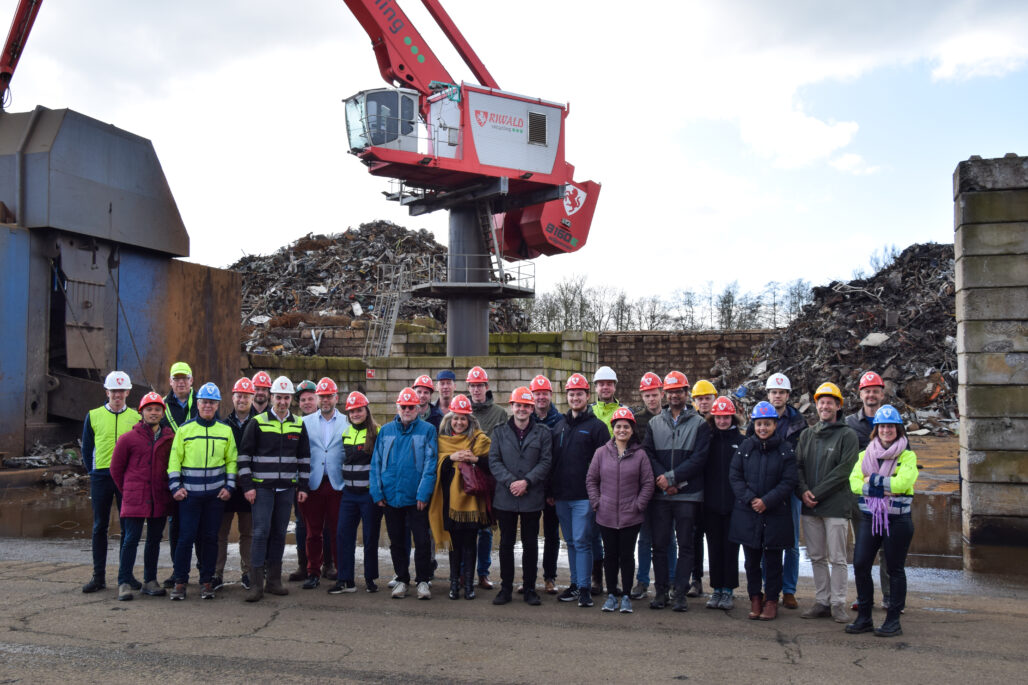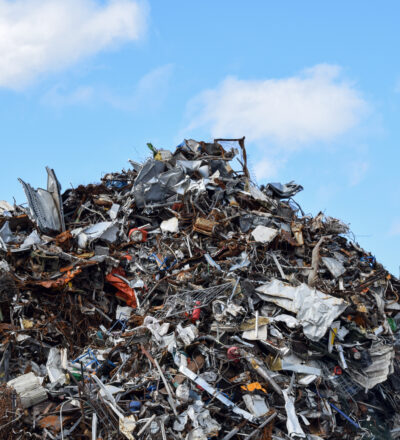This week is the European Week for Waste Reduction. During this week, special attention is given to the importance of waste reduction, product reuse and material recycling strategies. ISPT works in several programs such as Fascinating (agriculture), Circular Plastics Initiative (CPI) and Separations for Circularity on the valorisation of waste.
Unlocking the value of waste
Waste is valuable. For the chemical industry, it holds potential as an important feedstock. ISPT’s ReBBloCS-project focuses on developing new circular value chains for the valorisation of complex and mixed waste streams into valuable chemicals products.
In collaboration with over 25 innovators, SMEs, and policymakers, we aim to unlock the hidden value of complex waste streams. Complex waste, such as municipal waste containing a variety of different materials, are more challenging to bring back into the value chain. Valuable resources in these complex waste streams are often landfilled or incinerated. By tackling technological and legislative barriers, we can push the boundaries of recycling and drive systemic change in the process industry.

Using novel technologies
Valuable resources in complex waste streams could be reclaimed using novel technologies. Innovative SMEs have developed/are developing methods to physically, chemically, or biochemically convert these complex streams into basic (chemical) building blocks that can be used for the production of new products. The ReBBloCS-project is evaluating technologies for hydrolysis, pyrolysis and gasification and is using a cascading approach to explore potential value chains for a variety of complex waste streams. Pyrolysis of mixed plastic waste can increase recycling yields by up to 70%1.
Legislative barriers
Waste may be contaminated and can pose safety risks to humans and the environment. Therefore, recyclers have to demonstrate that their recycling process turns waste into safe products. This requirement is laid down in the European Waste Framework Directive and the Dutch “Wet Milieubeheer”, which includes so-called End-of-Waste (EoW) criteria. If a recycled product complies with the criteria, the product receives the EoW status. This means that the recycled product is no longer waste and can be used as a product, in accordance with product legislation and regulation.
However, the current system of demonstrating that waste has been recycled into a safe product is difficult to navigate and the requirements for the EoW status are not clear. In addition to this, the EoW status is essentially self-declared. This means that it does not deliver the legal certainty sought by recyclers, potential customers, and investors. The EoW alliance, consisting of Invest-NL, Groene Chemie, Nieuwe Economie (GCNE), water authorities and AquaMinerals, aims to tackle these barriers and accelerate circular solutions at scale.
Everything is a raw material, unless
A paradigm shift is needed
In the Netherlands, recycling companies must report to one or more of the 28 environmental services in order to obtain an EoW status. In addition, the Human Environment and Transport Inspectorate (ILT) carries out inspections. According to EoW-alliance, a paradigm shift is needed: assume that everything is a raw material. Until, on the basis of a decision tree in the context of the self-assessment, it turns out that it should be considered waste after all. This self-assessment should be carried out by a uniform approach across the EU, based on international ISO standards. There should then be a one-stop shop for raw material declarations in each country like it already is in Flanders, Belgium.
Together for a circular future
Do you have a project or waste stream case in which legislation limits the innovative capacity of your company? In the ReBBloCS-project, partners are identifying the barriers for market implementation of their products which we then bring to the attention of the EoW alliance. Get in touch with us and join us towards a circular economy.
Acknowledgement
This project is co-funded with subsidy from the Topsector Energy by the Ministry of Economic Affairs and Climate Policy.
